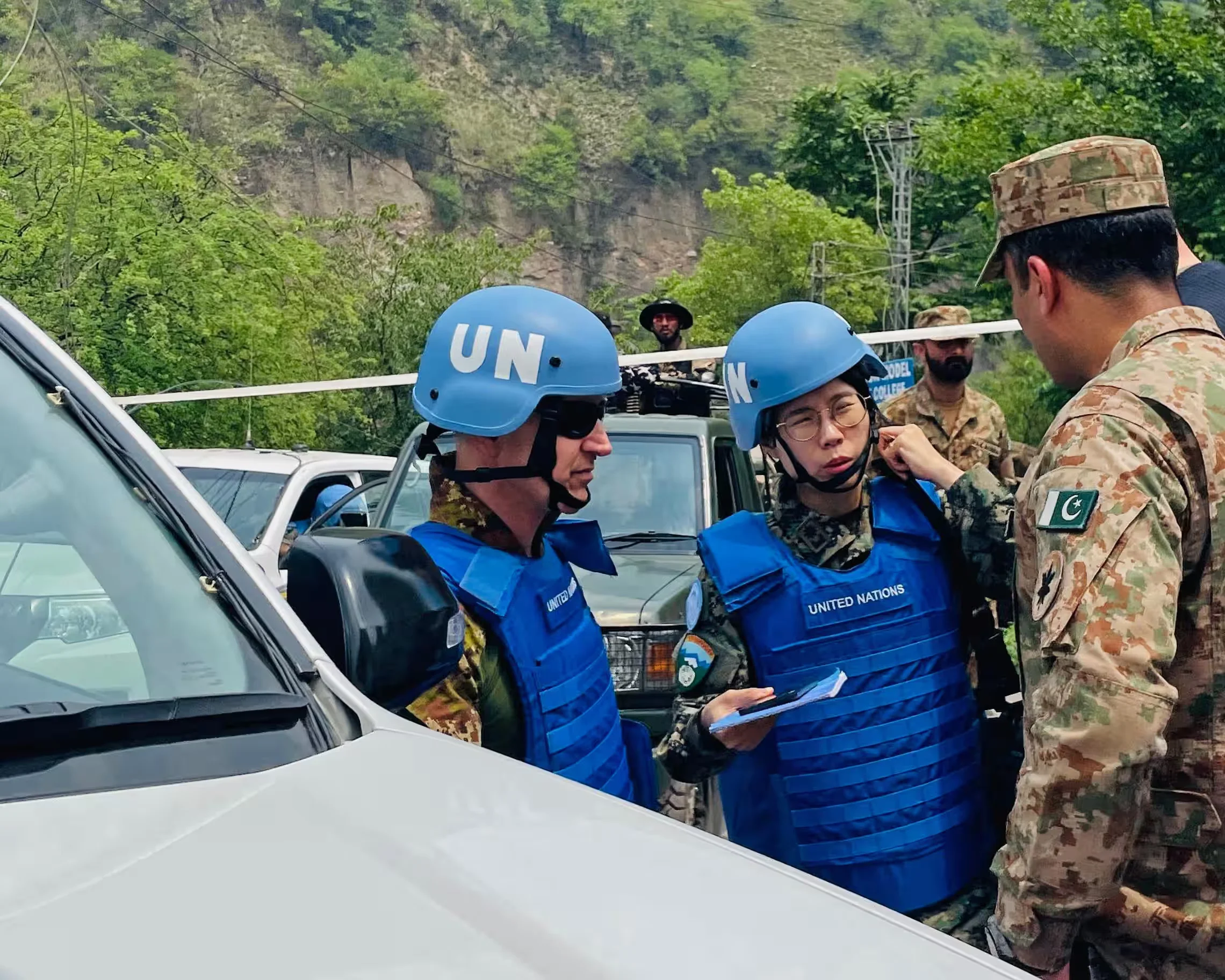In the wake of heightened tensions between India and Pakistan along the Line of Control (LoC), the United Nations (UN) observers have arrived in Muzaffarabad, Pakistan-administered Kashmir. This visit is aimed at assessing the situation on the ground following a recent Indian attack that saw firing at a UN vehicle in the region. The incident, which raised alarms about the safety of international peacekeeping personnel and further escalated the already fragile situation between the two nuclear-armed neighbors, has become a critical point of concern for the international community.
The UN observers’ mission to Muzaffarabad comes after a significant escalation of hostilities along the LoC, a de facto border that divides the Kashmir region between India and Pakistan. The specific attack in question involved the firing of shots at a UN vehicle, which, although resulting in damage to the vehicle, fortunately did not cause any casualties. This has prompted the UN to open an inquiry into the event, with officials aiming to determine the precise nature of the attack and its implications for the ongoing peacekeeping efforts in the region.
Pakistan’s Stance on the Incident
Pakistan has vehemently condemned the attack on the UN vehicle, describing it as a deliberate attempt by India to undermine the role of the UN Military Observer Group in India and Pakistan (UNMOGIP). This group has been stationed in the region for decades, tasked with monitoring the ceasefire line between the two countries. The Pakistani government has expressed concern that the attack was not an isolated incident but part of a broader strategy by India to discredit international peacekeeping efforts in the region. In an official statement, Pakistan’s Ministry of Foreign Affairs emphasized that the attack violated international laws and conventions, which protect peacekeeping personnel and ensure their neutrality in conflict zones.
Pakistan has also raised the possibility that the attack could have been part of a “false flag” operation. This theory suggests that India might have staged the attack in a way that would provoke international criticism of Pakistan, particularly at a time when the two countries are already engaged in an ongoing dispute over the status of Kashmir. The Pakistani government has requested that the UN take swift and transparent action in investigating the incident, urging that the findings of the inquiry be made public to prevent further escalation and to hold the perpetrators accountable.
India’s Reaction and the Context of the Attack
India, on the other hand, has not publicly taken responsibility for the attack on the UN vehicle. The Indian government typically frames its actions along the LoC as defensive measures in response to what it describes as cross-border terrorism emanating from Pakistan. However, the attack on the UN vehicle has drawn significant international attention due to the presence of peacekeeping personnel, highlighting the increasingly complex nature of the conflict.
The LoC has been a site of frequent skirmishes and ceasefire violations over the years, particularly since the revocation of Article 370 of the Indian Constitution in 2019, which revoked the special status of Jammu and Kashmir. Since then, there have been numerous clashes between Indian and Pakistani forces along the LoC, with both sides accusing each other of violations. The UN observers’ role has been vital in monitoring these violations, but the recent attack marks a disturbing trend of increasing threats to their safety and ability to carry out their mission effectively.
The Role of the United Nations in the Kashmir Conflict
The United Nations has long played a key role in the Kashmir conflict, which has been one of the longest-running territorial disputes in the world. The UN has deployed peacekeeping missions to the region since 1949, after the first Indo-Pakistani war, with the establishment of UNMOGIP. The mandate of the mission is to monitor the ceasefire line and report any violations, though its capacity to intervene militarily or politically in the dispute is limited.
Despite the UN’s presence, the Kashmir conflict remains unresolved, with both India and Pakistan continuing to assert their territorial claims over the region. The recent attack on the UN vehicle underscores the vulnerability of international observers in such a high-stakes geopolitical environment. It also raises questions about the effectiveness of UN peacekeeping operations in regions where powerful national interests are at stake and where both sides are entrenched in their positions.
Global Reactions and the Need for Diplomacy
The international community has expressed concern over the attack on the UN vehicle, with various diplomatic channels calling for a de-escalation of tensions between India and Pakistan. The European Union, the United States, and other global powers have reiterated the importance of dialogue and peaceful resolution to the Kashmir issue. However, there is also recognition that peacekeeping efforts alone cannot resolve the underlying political disputes between the two countries.
In this context, the arrival of UN observers in Muzaffarabad serves as both a symbol of international commitment to peace in Kashmir and a reminder of the challenges faced by international peacekeepers in conflict zones. Their investigation into the attack will be closely watched, as any conclusions could influence the course of future diplomatic efforts.
Conclusion
As the UN observers begin their assessment in Muzaffarabad, the world watches closely to see how this incident will be resolved. While the immediate focus is on ensuring the safety of peacekeepers and investigating the attack, the larger issue of resolving the Kashmir conflict remains unresolved. The incident serves as a stark reminder of the fragile peace that exists in the region and the critical role of international mediation in preventing further escalation. For now, the situation remains tense, and the outcome of the UN’s investigation could play a pivotal role in shaping the future of peacekeeping efforts in the region.
Reference: اقوامِ متحدہ کے مبصرین مظفرآباد پہنچ گئے، بھارتی حملوں کے بعد کی صورتحال کا جائزہ
